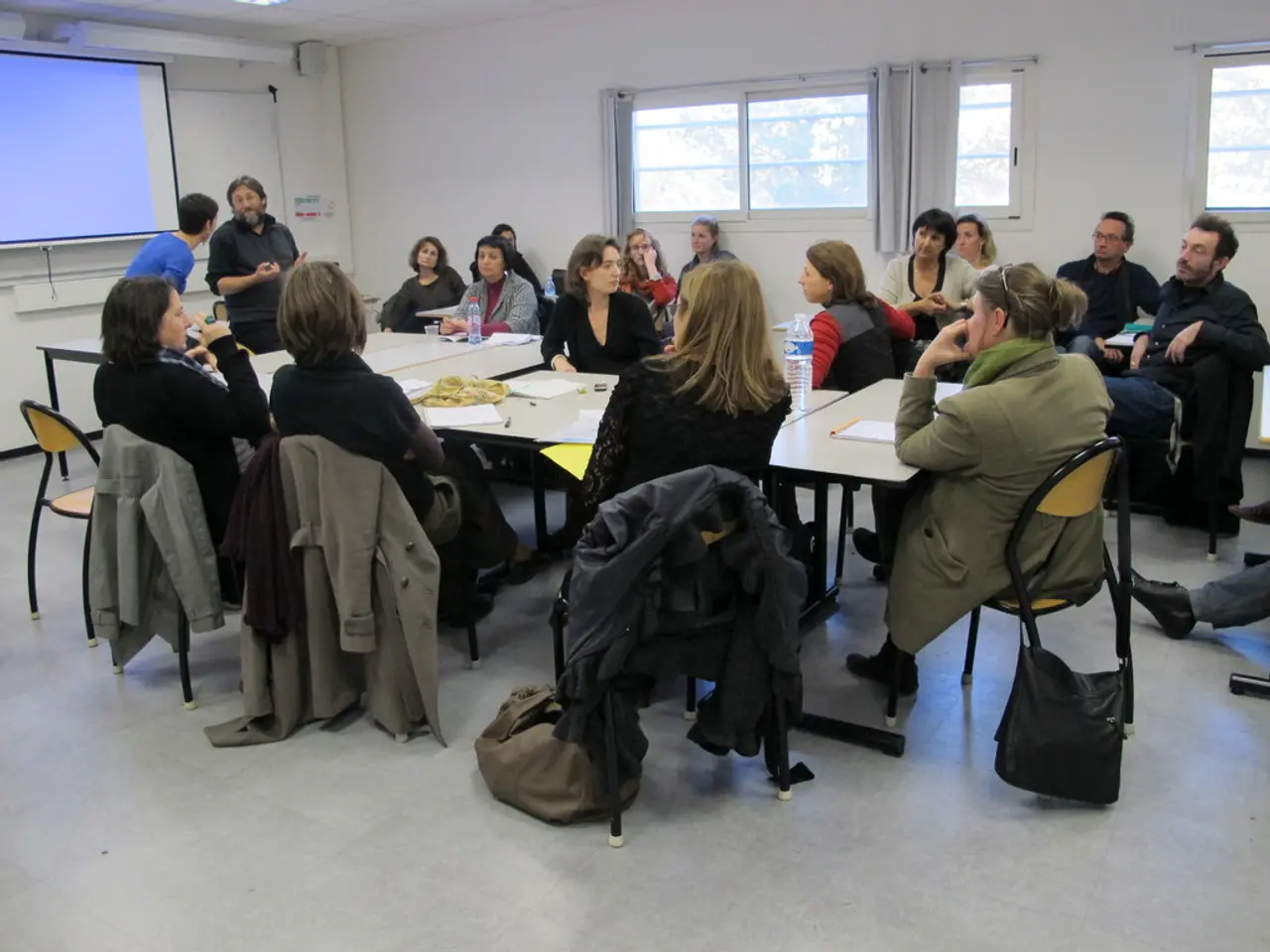Unspoken Verbal Chasms: How Inadequate Conversation Leads to Distancing
In relationships, whether they be romantic, platonic, or familial, communication gaps can lead to confusion, emotional distance, and a breakdown in connections. Unspoken words take an emotional toll, causing feelings of frustration, loneliness, and resentment to build. Fear of vulnerability is a common reason for these unspoken words, preventing open and honest communication.
The first step in bridging a communication gap is being willing to express oneself openly. Making space for difficult conversations is important to address emotional distance. Misunderstandings and assumptions often result from communication gaps, leading to unhealthy cycles and distance.
Fear of vulnerability, past experiences of being misunderstood, or a desire to avoid conflict can cause people to avoid communication. However, practicing vulnerability can foster deeper connections. Listening actively is crucial in effective communication. Creating a safe space for conversation by actively listening, being empathetic, and showing understanding can encourage others to open up about their feelings.
To overcome communication gaps and reduce their impact on emotional distance, partners should focus on building active listening, clear and specific expression of needs, and creating a safe space for honest, transparent conversations. These strategies foster understanding, trust, and emotional closeness.
Effective approaches include active listening, expressing oneself with "I-statements", creating a shared closeness plan, and transparency and safe spaces. Active listening involves giving full attention to your partner's words and emotions, paraphrasing to confirm understanding, and asking clarifying questions. This reduces misunderstandings and helps partners feel truly heard.
Expressing yourself with "I-statements" communicates feelings without blame by saying, for example, "I feel [emotion] when [situation] because [impact]." This lowers defensiveness and opens dialogue.
Creating a shared closeness plan involves identifying specific actions or routines that make both partners feel loved and connected, such as recalling moments of closeness, ideal shared activities, or small gestures, and setting a weekly plan with check-ins to reinforce connection.
Transparency and safe spaces foster trust through honest, non-judgmental conversations in distraction-free settings. Use techniques like the LARA method (Listen, Affirm, Respond, Add) to encourage openness and manage emotional triggers carefully.
The impact of communication gaps often manifests as emotional distance, recurring conflicts, and feelings of disconnection. By intentionally improving communication, couples can rebuild trust, deepen intimacy, and break the cycle of emotional distance. For persistent difficulties, couples therapy or professional guidance can provide tailored tools to enhance communication and resolve conflicts more effectively. In some cases, recognizing when communication barriers are irreparable and deciding to end the relationship can be a necessary step for individual well-being.
Addressing misunderstandings directly is essential to clear up any confusion. The emotional toll of unspoken words can lead to resentment, miscommunication, and the breakdown of relationships. By focusing on active listening, clear expression of needs, and creating safe spaces for honest conversations, relationships can be strengthened and emotional distance can be reduced.
Healthy relationships necessitate open and honest communication to prevent communication gaps, which can lead to emotional distance and fear of vulnerability. Educating oneself on active listening, expressing "I-statements," creating a shared closeness plan, and fostering transparency can help bridge these gaps. Mental health, as well as personal growth, thrive in a supportive, communicative relationship landscape. Therefore, underlying feelings of frustration, loneliness, or resentment can often be addressed by engaging in self-development activities like relationship workshops or therapy, which focus on health-and-wellness and lifestyle changes. By doing so, partners not only enhance their relationship but also contribute to their own personal growth and overall well-being.




